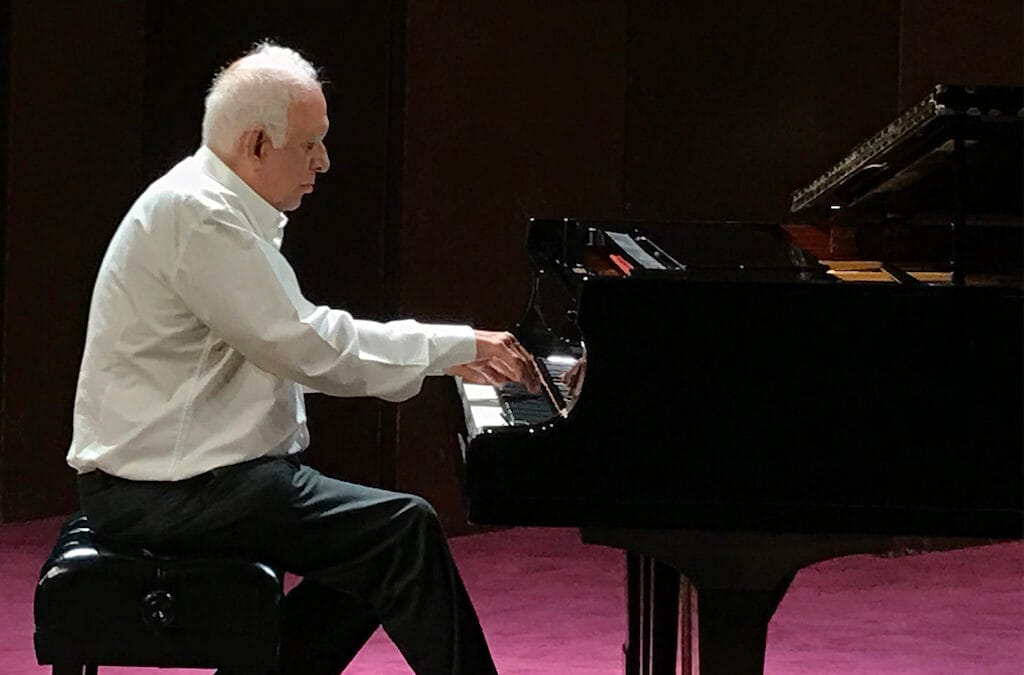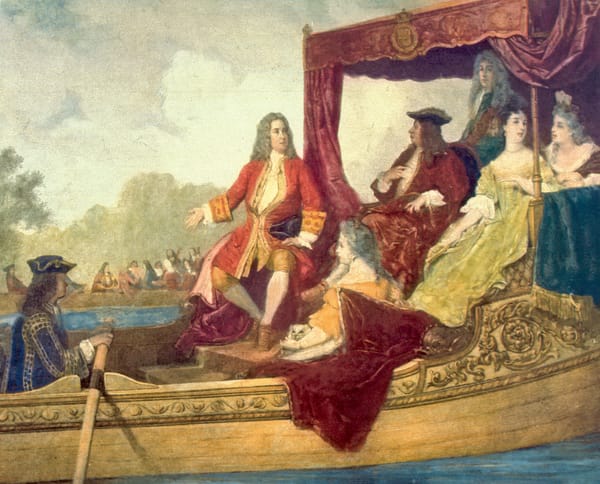A Pianissimo Journey

One of the finest pianists of India, the story of Rumi Nanavati’s life in music deserves an audience of its own. By Snigdha Hasan
In a world where renown is quantifiable in terms of Google results and number of followers, an internet search for Rumi Nanavati yields but two helpful links and a dormant Facebook account. Yet, the two results seem to bookend the story of the six-decade-long career of a pianist with an extraordinary gift. One leads to an annotated Russian documentary, Musical Spring, which features the music of the II International Tchaikovsky Competition, held in Moscow in the spring of 1962. ‘Isn’t it marvellous that Russian music can be heard in an Indian guest’s performance!’ says the effervescent narrator as a young, dapper Nanavati plays Mussorgsky’s Pictures at an Exhibition with dexterity. The other takes you to an article in the Parsiana, written after he performed for an intimate audience in a private recital at the NCPA in November 2016—this time, Toccata and Fugue in D minor by Johann Bach and two scherzos by Frédéric Chopin were part of the repertoire in addition to all 10 pieces of the Mussorgsky suite.
Born and raised in Bombay, Nanavati was a musical prodigy whose talent at the piano was spotted and encouraged by his aunt, who taught music in a school, and Harry Lyttler, a well-known British piano teacher of the 1950s who was based in the city. Despite his father’s serious reservations about a career in music, the young pianist set out to study the instrument in conservatories in London, Moscow and Paris, winning gold medals and vindicating the trust his teachers back home had reposed in him. Nanavati continued to prove his prowess as a professional pianist in the many musical meccas of Europe, where he performed before Queen Elizabeth II and Queen Elisabeth of Belgium, and played with the Moscow and Warsaw philharmonic orchestras.
Life, however, had other plans. On a steady path to the peak of his career, Nanavati received the news of his mother’s poor health and returned to India. And he came back at a time when Western classical music in much of the country was only heard in isolated pockets. Though Bombay had its share of patrons and venues that promoted performances in the tradition, it could not be compared to the thriving scene he had left behind in Europe for good. “I never went back again. It was an impulsive decision, one that remains my biggest regret,” says Nanavati in a telephonic conversation, the lament in his voice reminiscent of what noted composer Vanraj Bhatia faced when the opportunities he got here proved to be no match for his training in Western music.
“Life has this dark side too and I am sorry that I bring no cheer this morning,” the thorough gentleman, now 84, continues. What he does look back on with much fondness and joy is the time he taught music in the Jamshed Bhabha Theatre premises at the NCPA. “Those were happy days,” he says. Deteriorating health left Nanavati indisposed and he had to move to a senior citizens’ centre in Navsari and later to a flat in an apartment complex built by the Poona Parsee Panchayat in Pune. The move came at a cost. The veteran pianist had no access to his beloved instrument.
That he was in need of support first came to the NCPA’s notice on the initiative of noted lawyer Cyrus Nallaseth, whose son Soli is a young, promising pianist. When Nanavati expressed his desire to start playing again, the NCPA organised a private recital at the Experimental Theatre. “It was an impromptu recital and Rumi played rather difficult pieces. The lack of dexterity that stemmed from not having played the piano for a considerably long time was made up for by his musicianship and one could tell that he was a pianist of quality,” says Chairman Mr. Khushroo N. Suntook.
“The NCPA has been more than good to me. I was in a bad state when they sent me an ambulance and took care of my health. Mr. Suntook offered me a home in Colaba where I now live with an attendant. The NCPA is the only family I have,” says Nanavati, who chose not to have a family of his own.
“One of the hallmarks of a civilised society is that it treasures its artistes. We need to celebrate our musicians and take care of them. Lives lived in complete dedication to an art form cannot be left to fade away in neglect. I hope people will come forward to support artistes whose performances they admire through their concert-going years. There are so many of them,” avers Mr. Suntook.
Having lost his vision recently, Nanavati cannot read or play music anymore. “Days roll by and the one thing I miss the most is music,” he rues. There is a pregnant pause and then he resumes the conversation before politely excusing himself. “There was a time when my fingers used to produce beautiful music. I want to sit at the piano once again and see the NCPA one last time.”
This piece was originally published by the National Centre for the Performing Arts, Mumbai, in the July 2021 issue of ON Stage – their monthly arts magazine.





